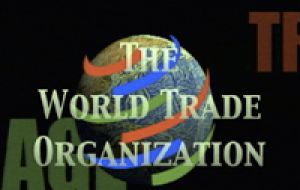MercoPress. South Atlantic News Agency
Developing countries split over agriculture in Geneva WTO talks

Differences emerged this week in Geneva between developing countries over a key issue in World Trade Organization (WTO) agriculture talks: basically the degree to which poorer food importing countries can protect their farmers in any eventual tariff-cutting WTO deal by designating certain products as “special.”
Pakistan, backed to a greater or lesser extent by a number of developing country farm exporters such as Brazil, Uruguay and Thailand, proposed a plan to limit these special products. But in a closed-door meeting it met strong resistance from big food importing countries such as India and Indonesia, diplomats said. "We are seeing some of the negotiating blocks begin to crumble," said one Latin American diplomat referring to developing country alliances that have been an important feature of the WTO negotiations so far. Agriculture has long been a major stumbling block to any new free trade agreement. WTO chief Pascal Lamy says a deal must be concluded this year or the negotiations could fail completely, dealing a severe blow to the multilateral trading system. India and Indonesia have millions of subsistence farmers who they say could be ruined by import surges. They insist any deal must honor an understanding reached at the last WTO ministerial meeting in Hong Kong in 2005 that poor countries be allowed to decide themselves on which products to designate as "special". Importing countries grouped in the Indonesia-led G33 developing country alliance say that at least 20% of imports should be so protected, but others argue that the criteria would allow such countries to shield virtually any product of interest to exporters. The United States, which is under pressure to agree to deeper cuts to its farm subsidy programme as part of any deal, has been insisting that, in return for its concessions, big markets such as India must be ready to accept more U.S. goods. In an effort to speed the talks, the chairman of the agriculture negotiating committee, Ambassador Crawford Falconer of New Zealand, plans to present by next week an outline of where he thinks differences could be narrowed.




Top Comments
Disclaimer & comment rulesCommenting for this story is now closed.
If you have a Facebook account, become a fan and comment on our Facebook Page!